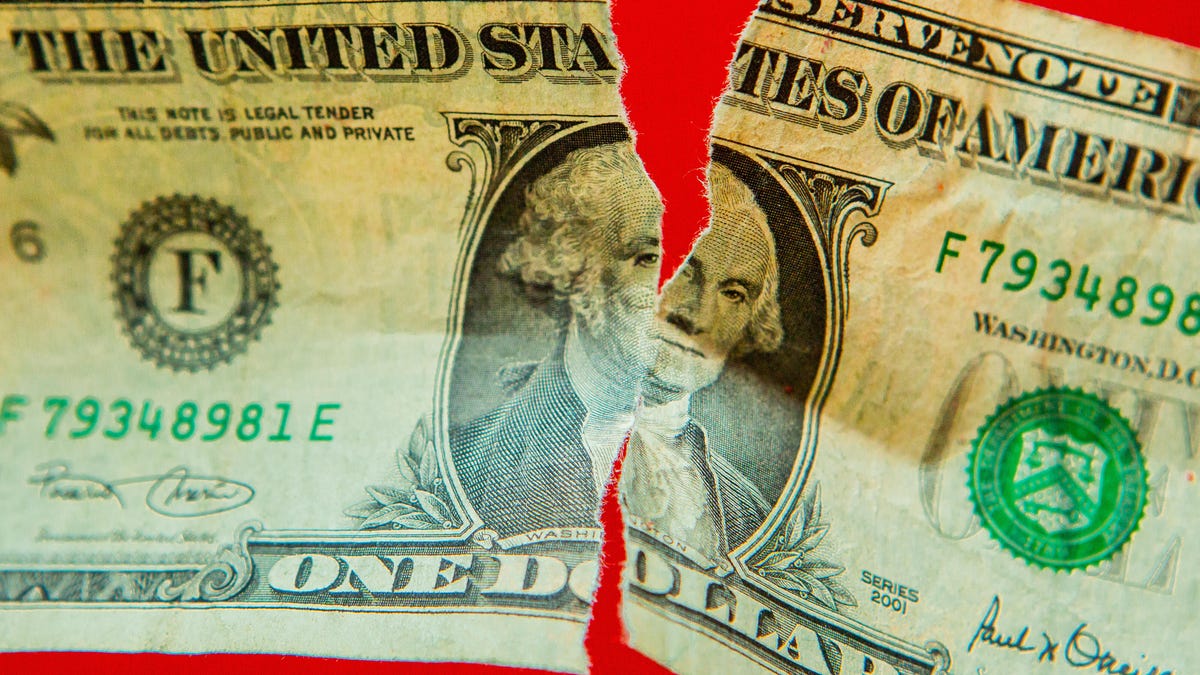
Some who received a stimulus check may be required to send back some or all of the payment, depending on specific circumstances and errors made by the IRS. Here's how to find out if you're in this group.


Katie is a writer covering all things how-to at CNET, with a focus on Social Security and notable events. When she's not writing, she enjoys playing in golf scrambles, practicing yoga and spending time on the lake.
Expertise Personal Finance: Social Security and taxes Katie Teague April 22, 2021 2:00 p.m. PT 4 min read
One-hundred sixty-one million third stimulus check payments have been made to individuals and families who qualify for the payments . That includes " plus-up payments " for those eligible for a larger check based on their 2020 tax returns . But what happens if the IRS sent you stimulus money you didn't actually qualify for ? It could be that you'll have to return the amount you were overpaid. (This applies to the child tax credit , too.)
We'll go through scenarios where you'd have to return stimulus money you received for any of the three checks. For example, with the first stimulus check , the IRS accidentally sent out payments to people who weren't eligible. If you received a check in error, there are specific ways to send the money back, depending on the payment method used -- paper check , EIP card or direct deposit .
Read on for details to know. For more information, here's how you could get up to $50,000 back with one-time COVID credits , and what we know about student loan debt forgiveness . Brush up on the situation with a fourth stimulus check , and educate yourself on all the confusing child tax credit rules , including how much money you could get . This story has been updated.
The income cutoff to receive a third stimulus check is $80,000 for an individual taxpayer, $120,000 for a head of household and $160,000 for a married couple that files jointly. If you make more than that amount and still got a payment, the IRS will likely expect you to return all or some of it.
However, if you made more in 2020 than you did in 2019 but you get a stimulus check before filing your taxes, you won't be expected to return that money . You can use our third stimulus check calculator to estimate how much you'll get.
Watch this: Stimulus check 3: How much money you'll getThe government determines who is and isn't eligible to receive a stimulus check based on several factors. If you fall into any of these categories and received a stimulus check, it was likely by error:
If you received a payment for someone who died in 2019 or earlier, the IRS says you should return the entire payment "unless it was made to joint filers and one spouse is still living." If you're the living spouse, you should return half the payment -- just not more than $1,200 in all.
However, if the check is issued in both your name and your deceased spouse's name (and therefore you can't deposit the money), you'll need to return the whole amount to the IRS. After the agency processes the returned payment, it will issue a new check with the correct amount for you.
For the third check, it depends on which tax return the IRS uses . If it uses your 2019 tax return, you'll likely get to keep the amount you received for the person who has died.
If you've already cashed or deposited your check, here's what to do.
1. Use a personal check or money order and make the check payable to the US Treasury. You'll also need to write "2020 EIP" and include the taxpayer identification number or Social Security number of the person whose name is on the check.
2. On a separate piece of paper, let the IRS know why you're sending the check back.
3. Mail the check to the appropriate IRS location -- that depends on which state you live in.
If any of the above situations pertain to you, you may need to send your stimulus check back. Here's how to do it for each scenario, per the IRS.
1. Write "VOID" in the endorsement section on the back of the check.
2. Do not bend, paper clip or staple the check.
3. On a separate piece of paper, let the IRS know why you're sending the check back.
4. Mail the check to the appropriate IRS location -- it varies depending on which state you live in.
If you were eligible to receive the first or second stimulus check and it never arrived, you'll need to claim it as a Recovery Credit Rebate on your 2020 taxes this year, even if you don't usually file taxes . Alternatively, you may have to start an IRS payment trace .
If you didn't receive the third check, or the amount is less than you expected , the IRS may send you a plus-up payment after it receives your 2020 tax return.
You may need to consult additional information if you:
To stay updated on the latest, here's everything to know about stimulus check delivery . If you're having stimulus check problems, do this instead of calling the IRS . And here's what to know about other ways you could get money with your tax refund .